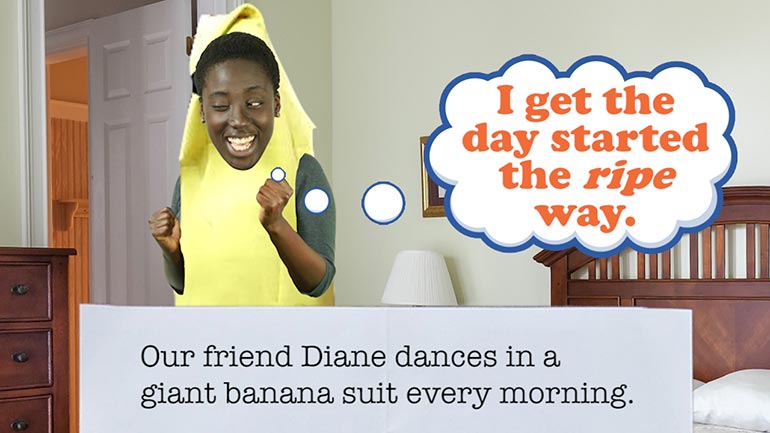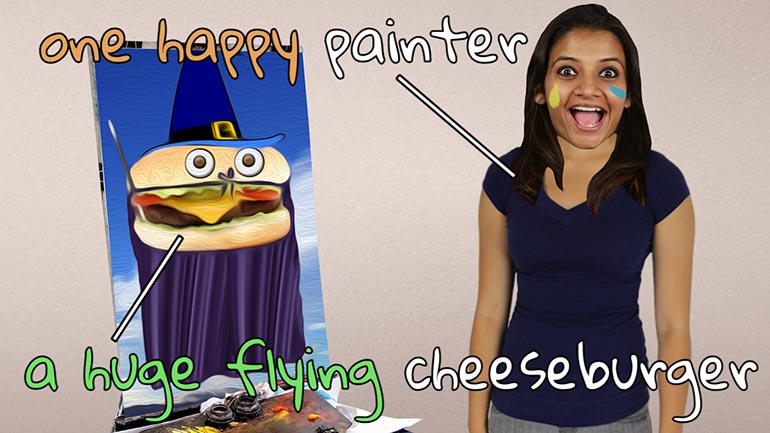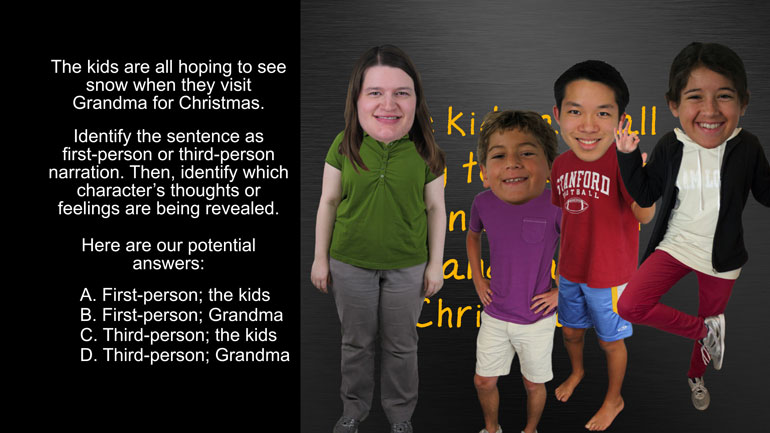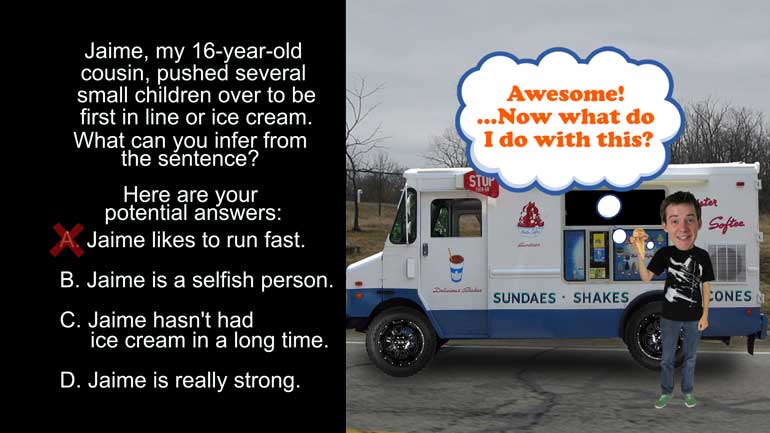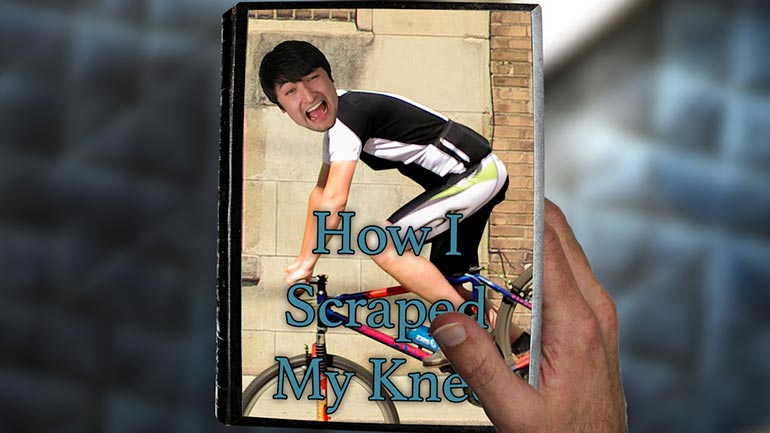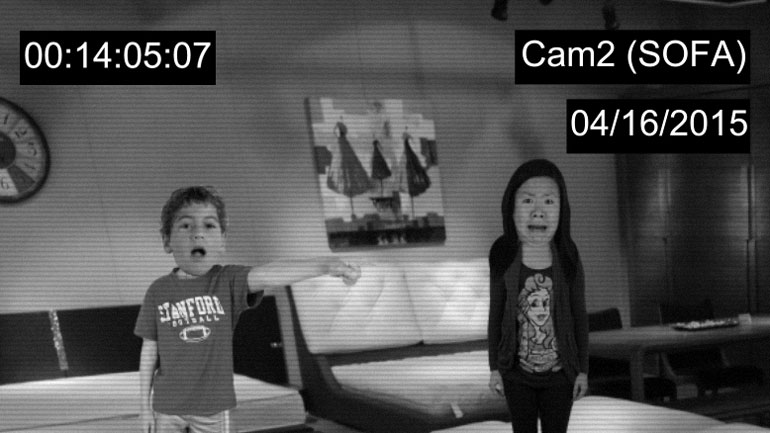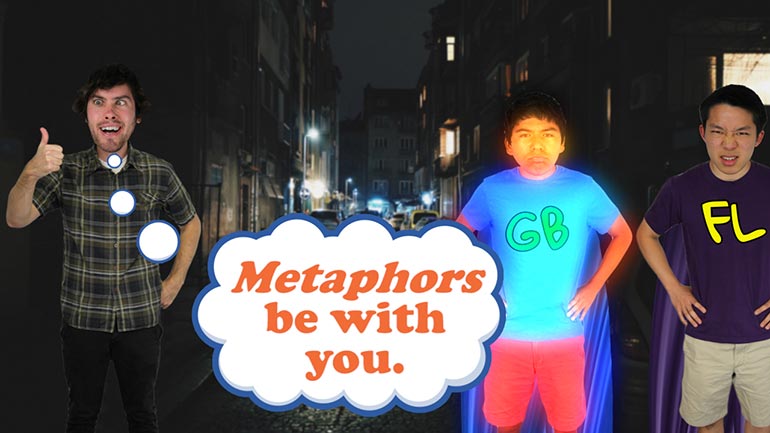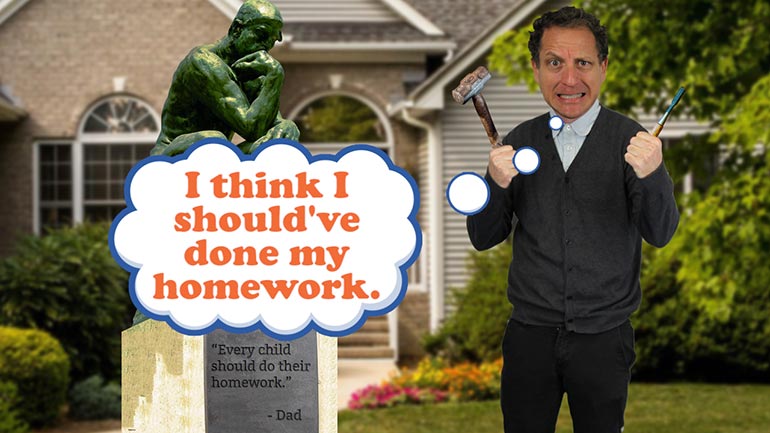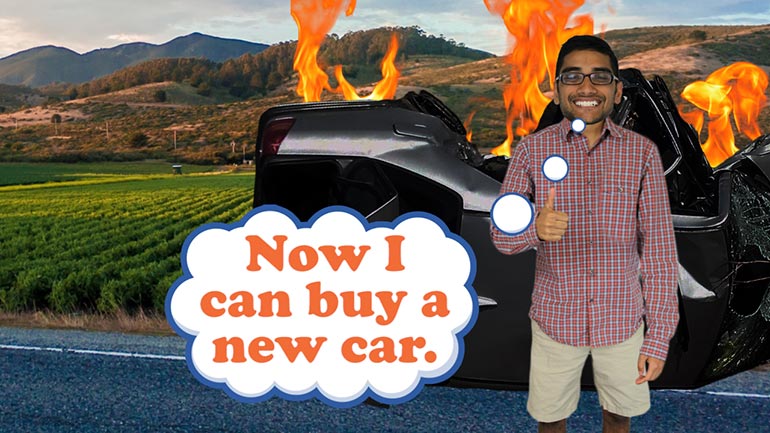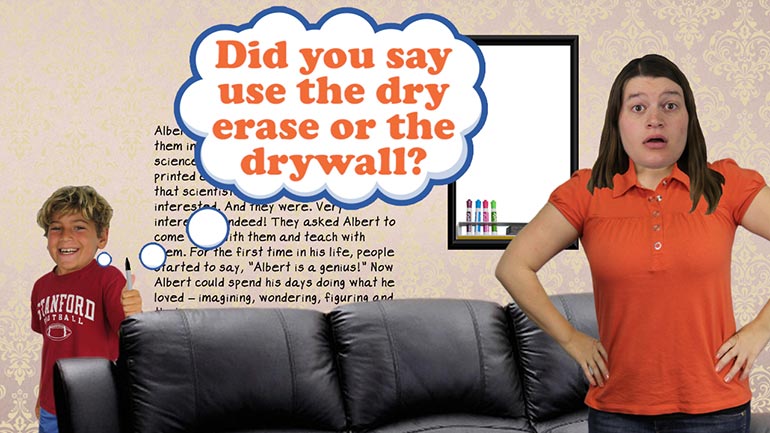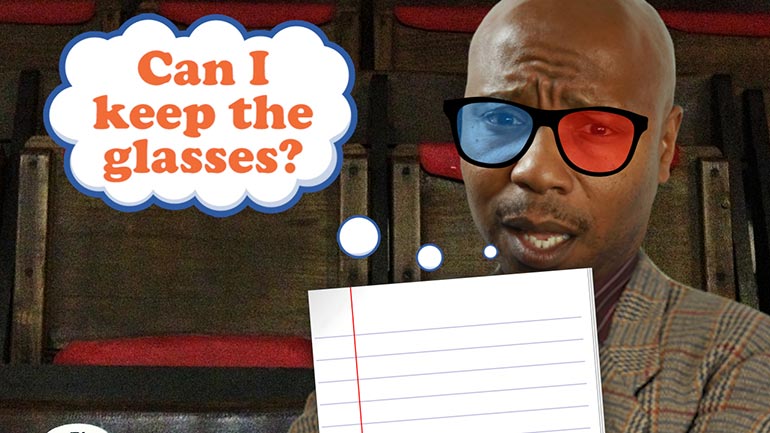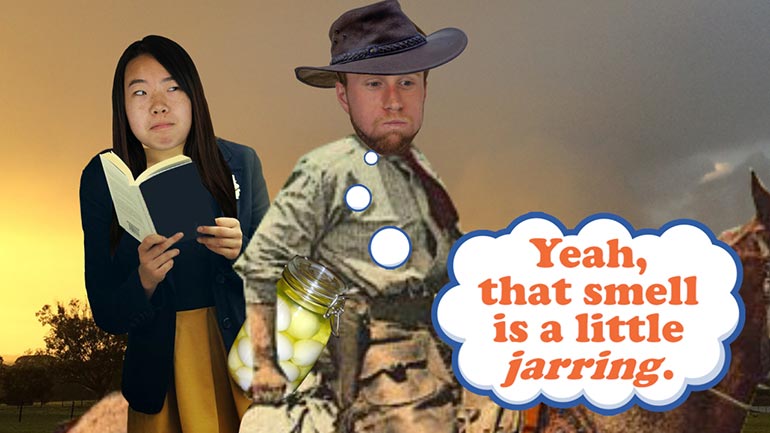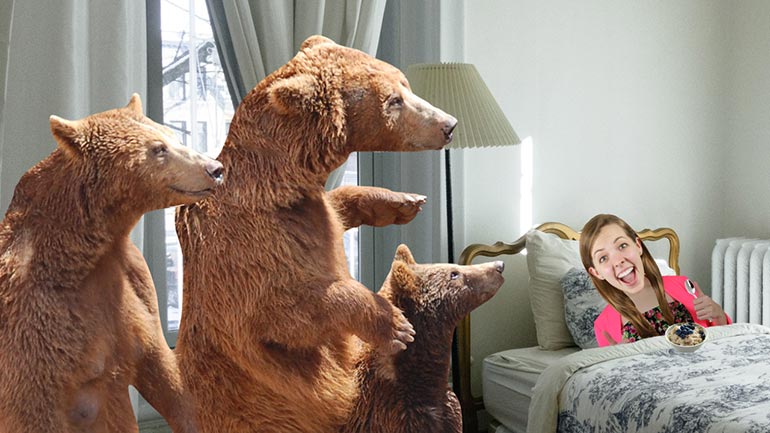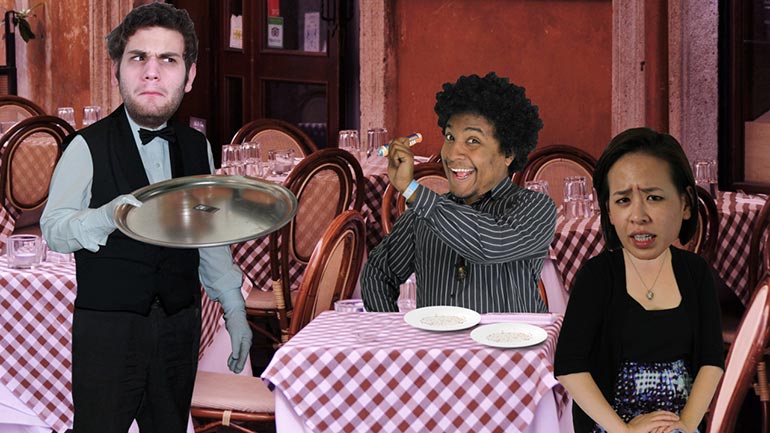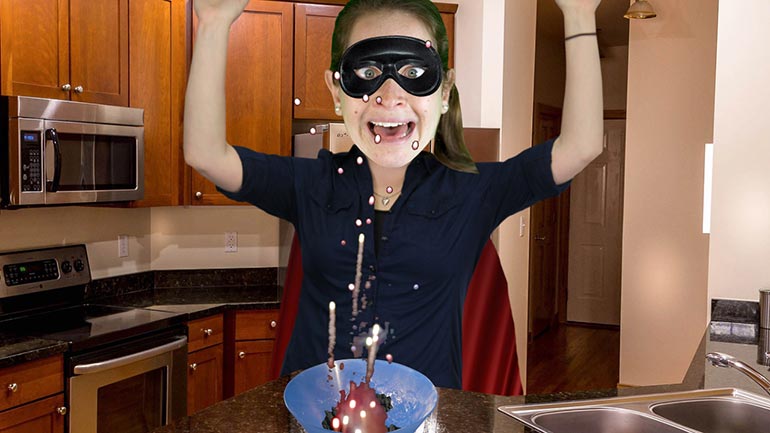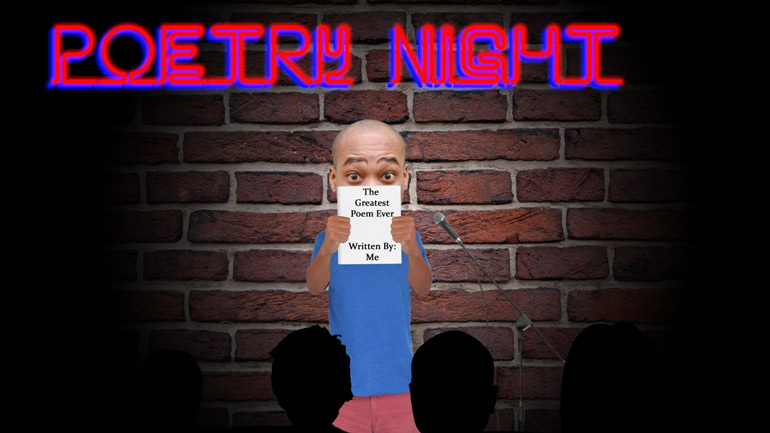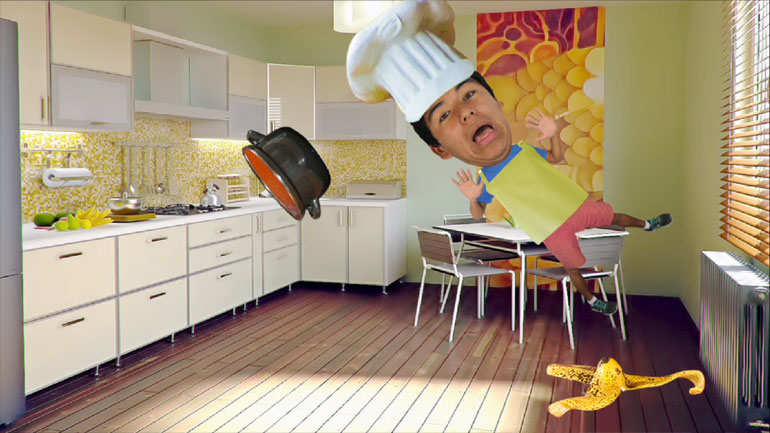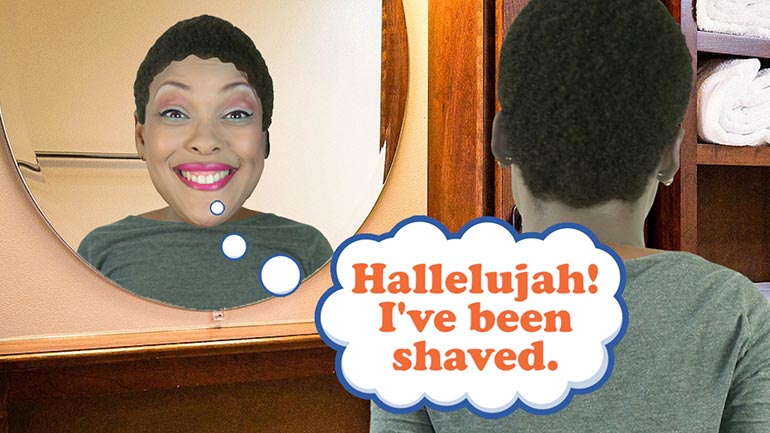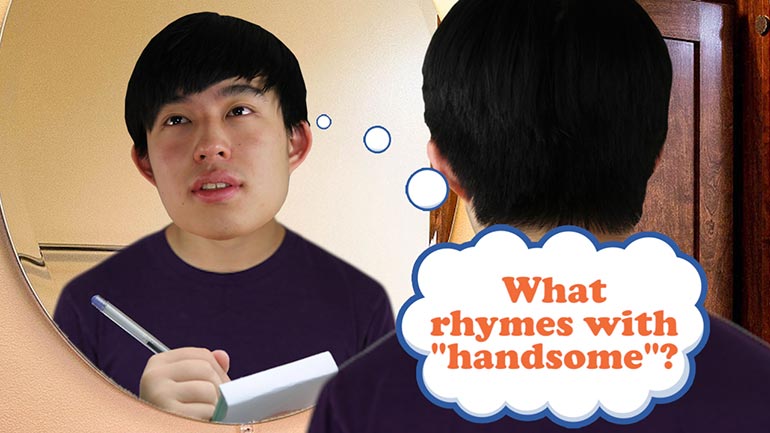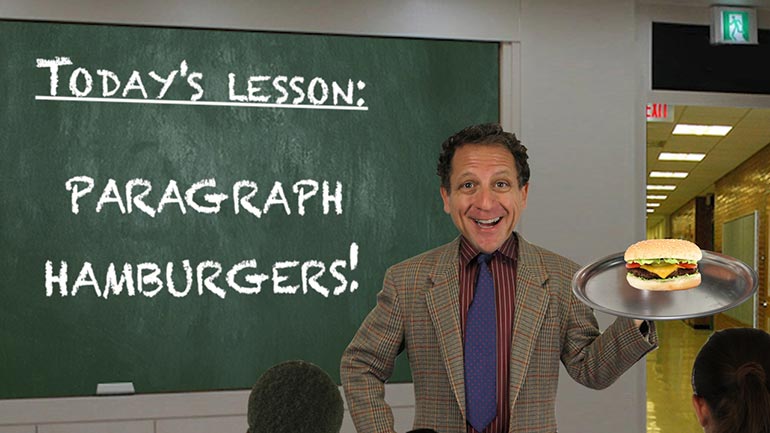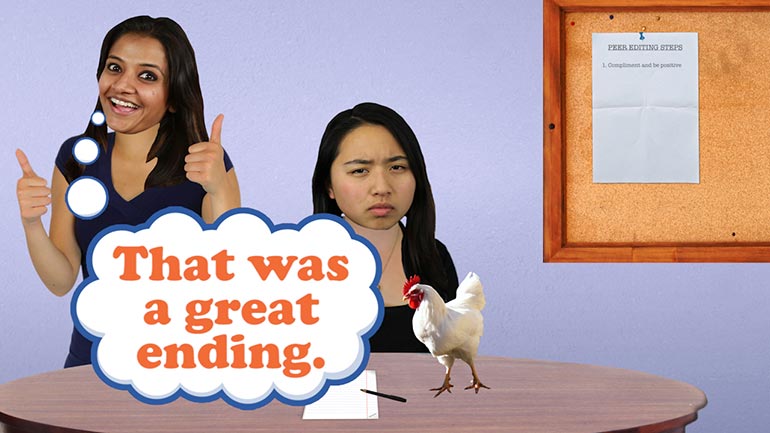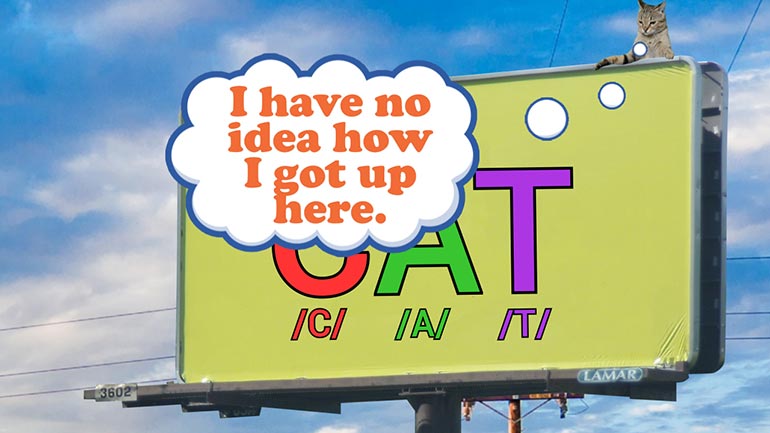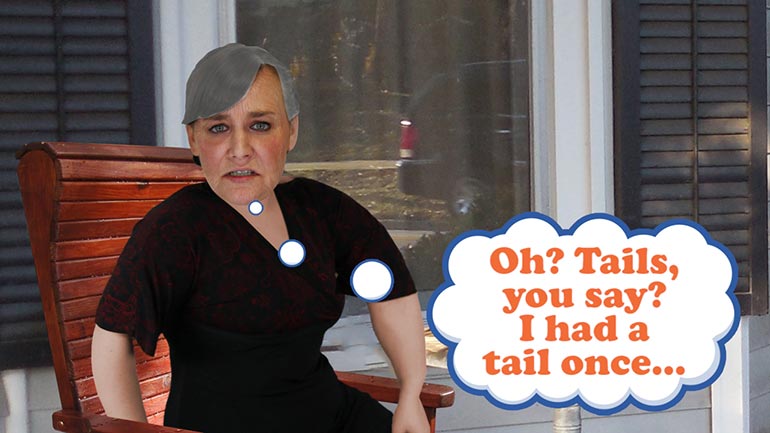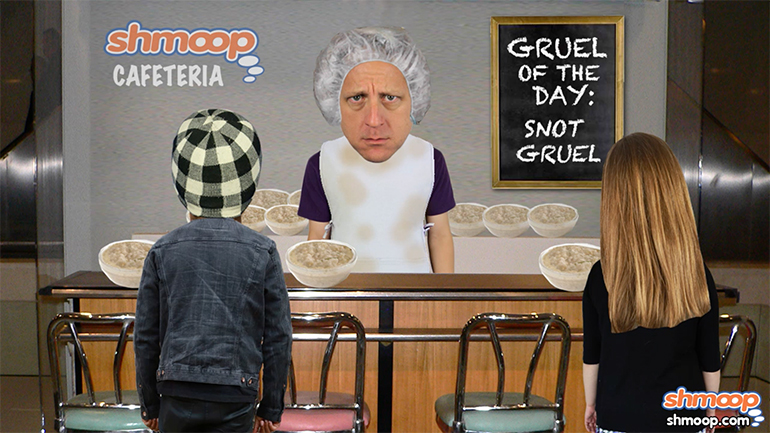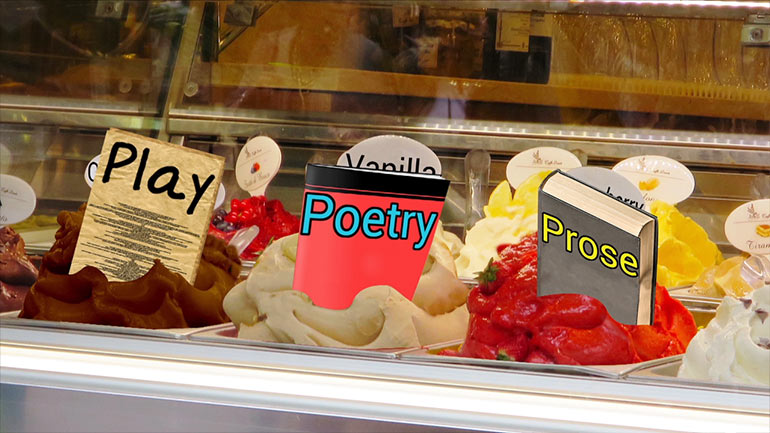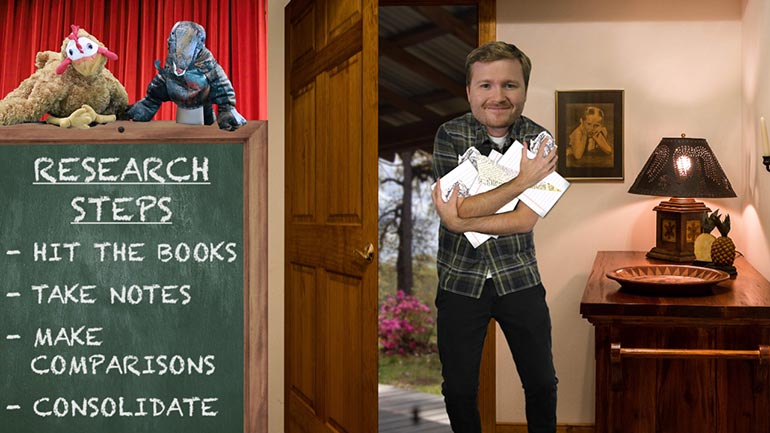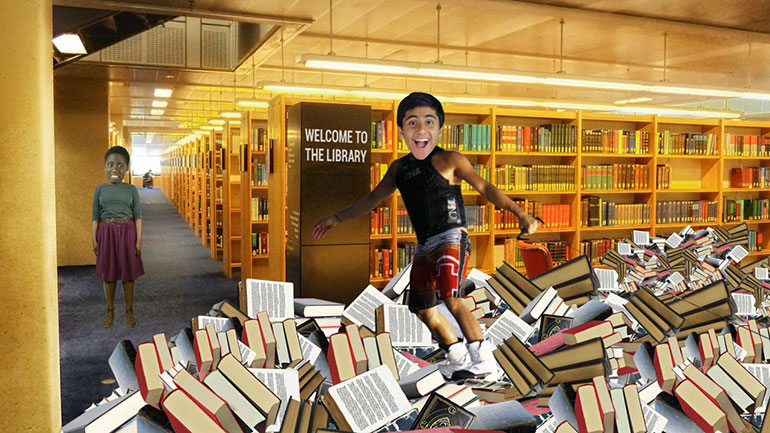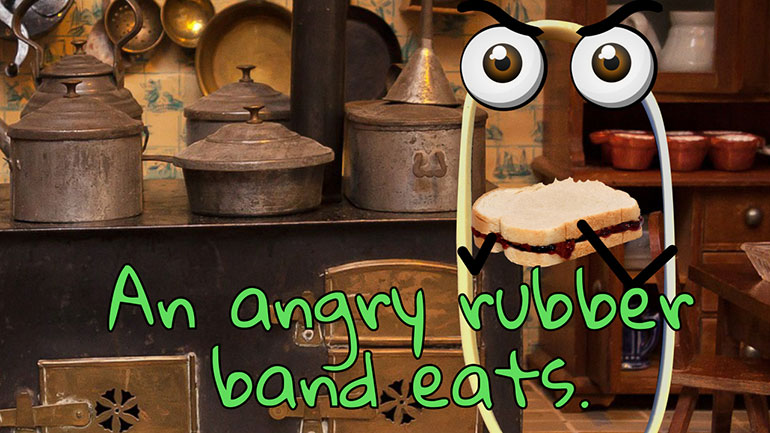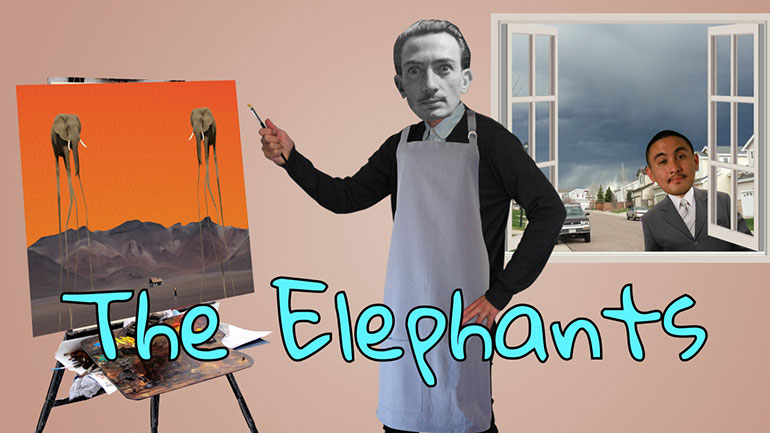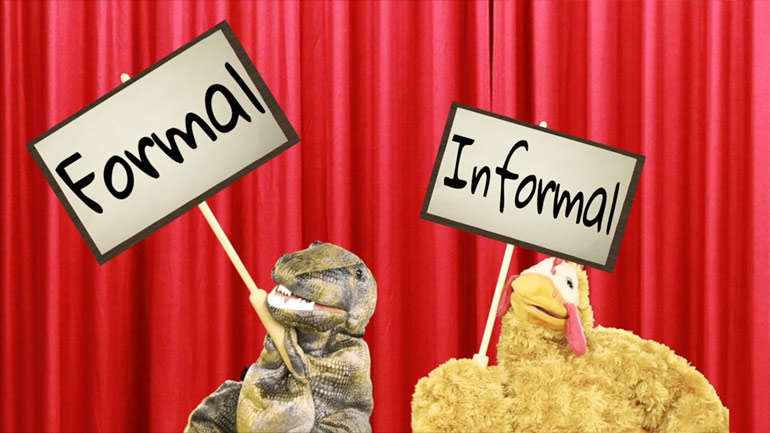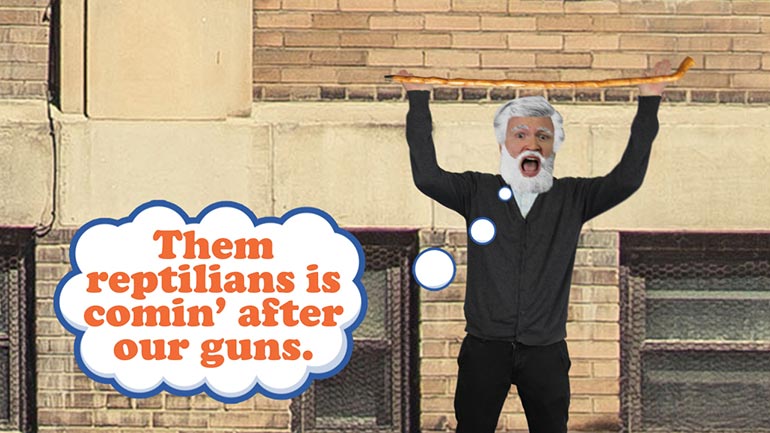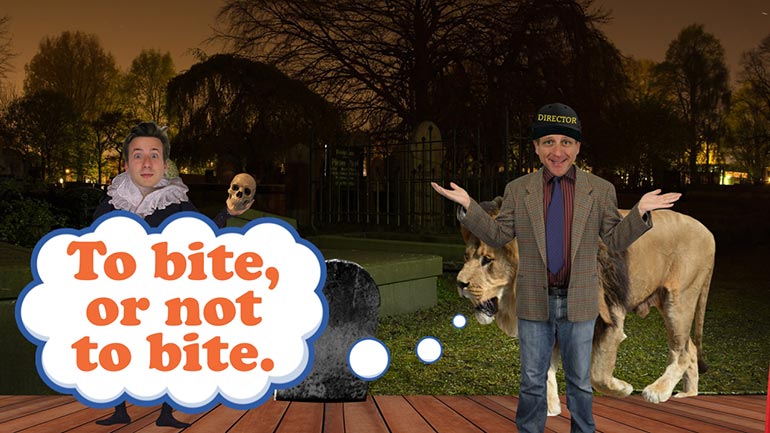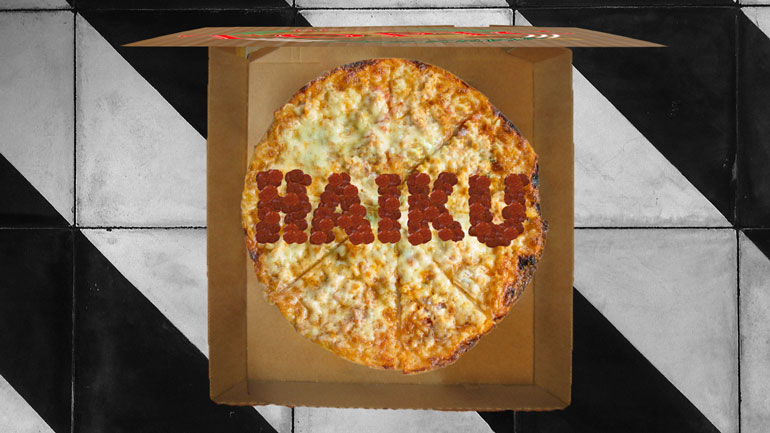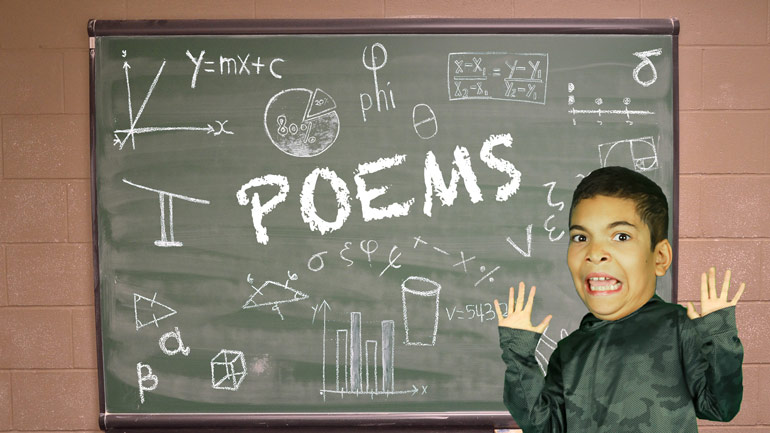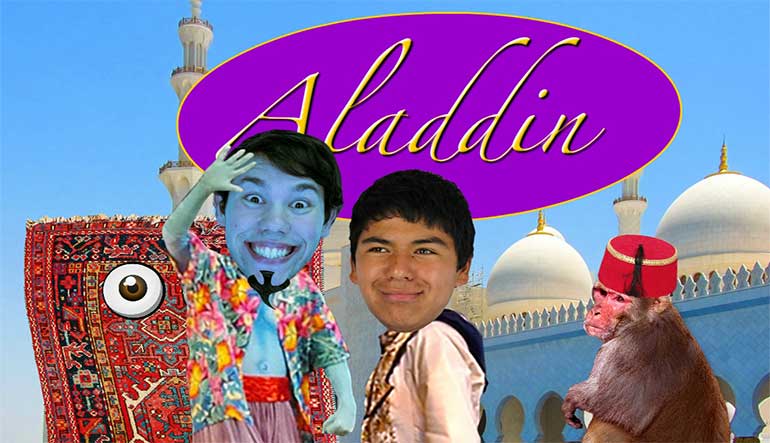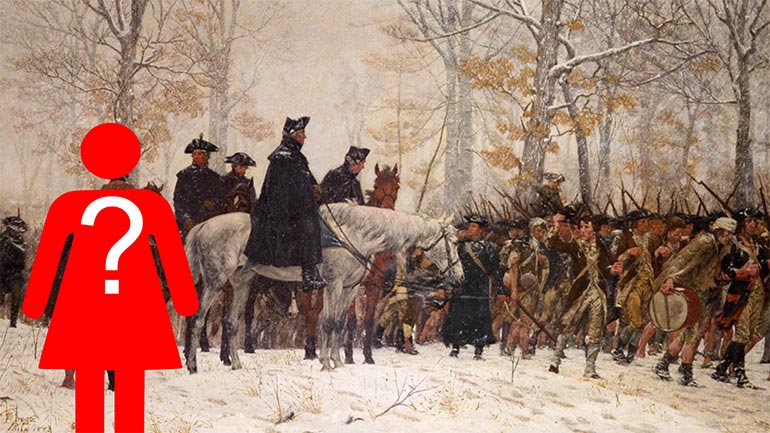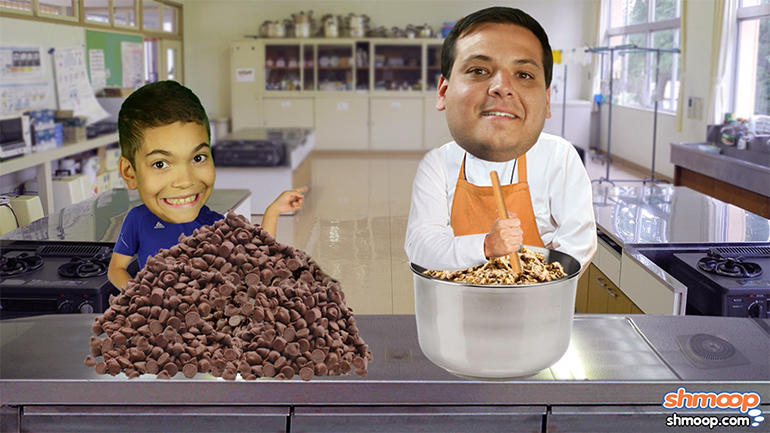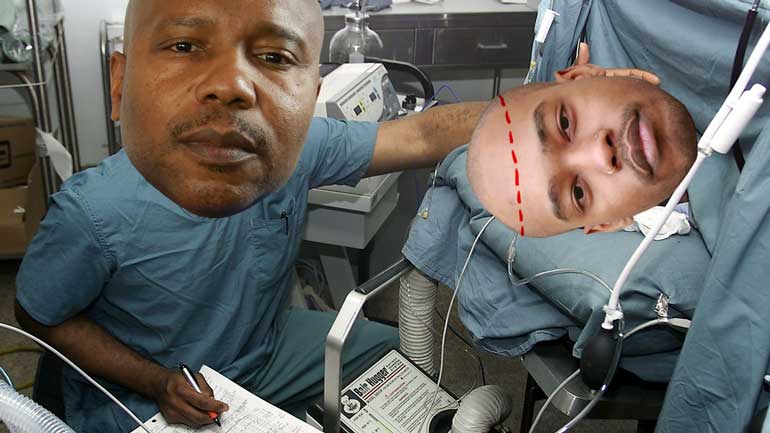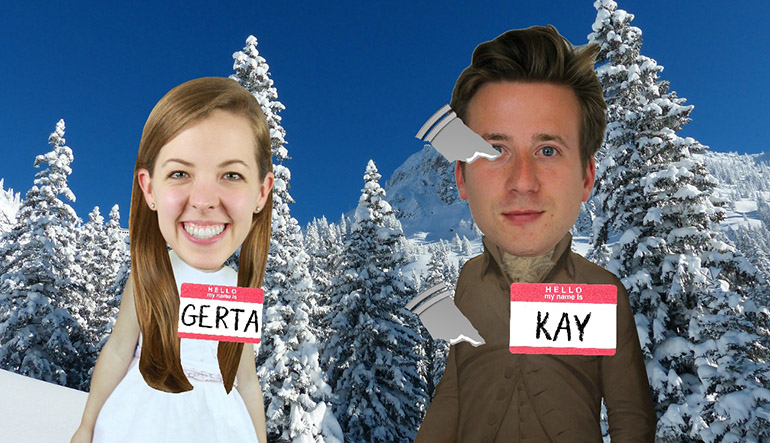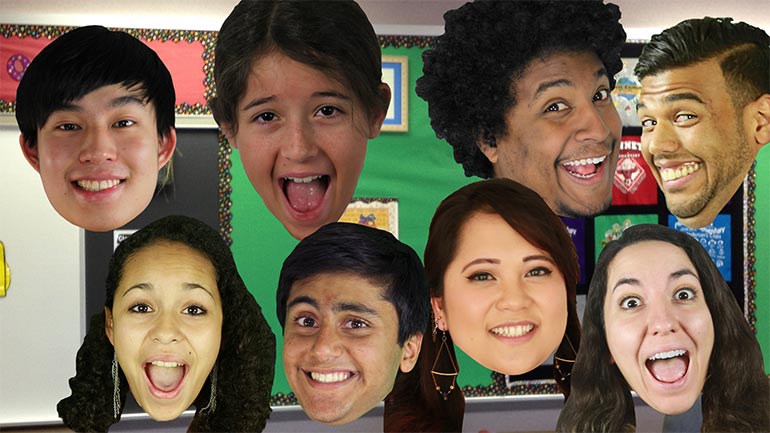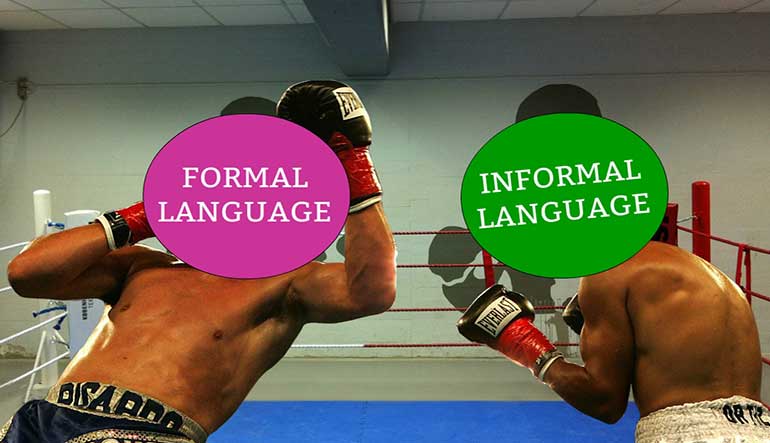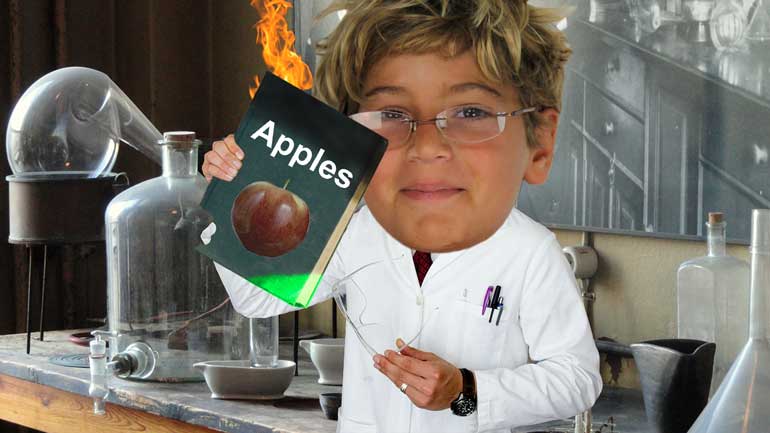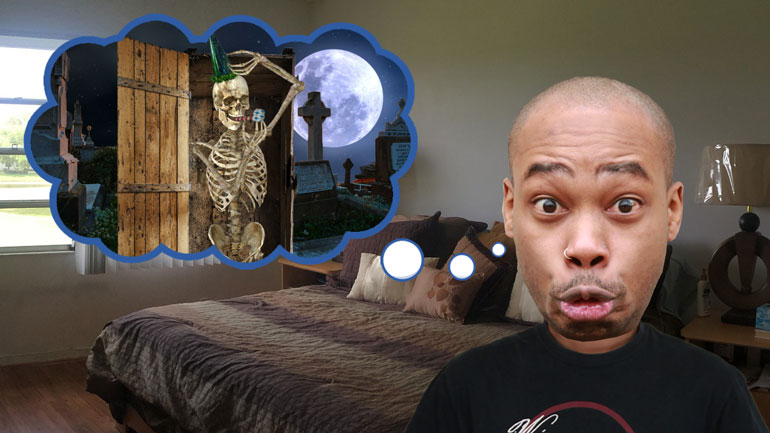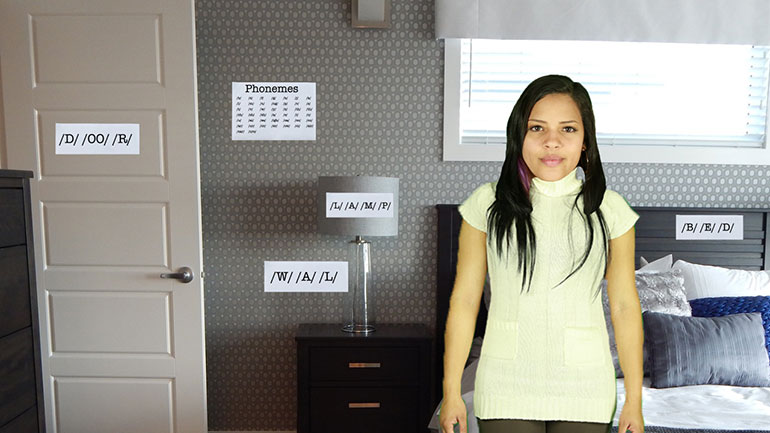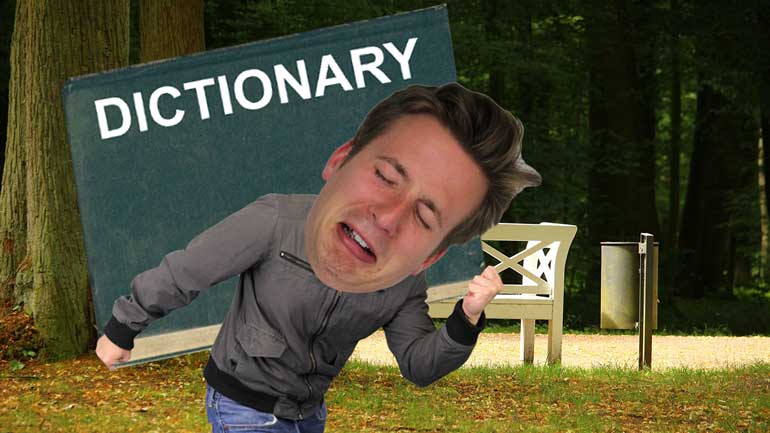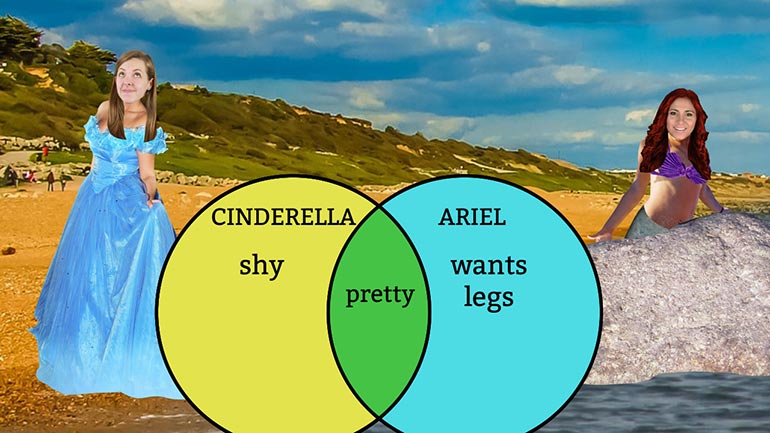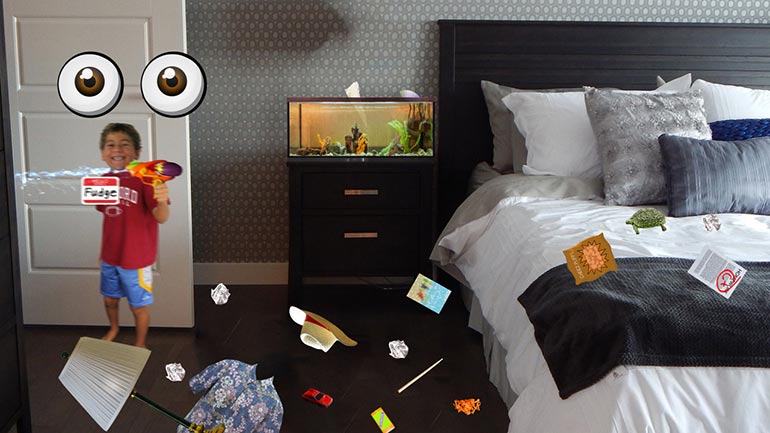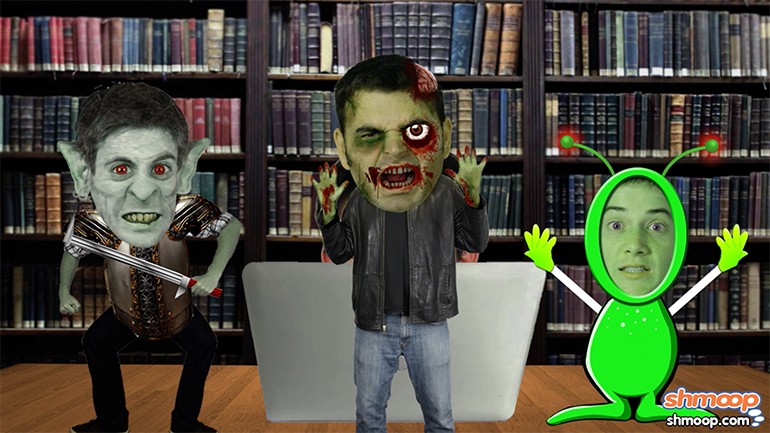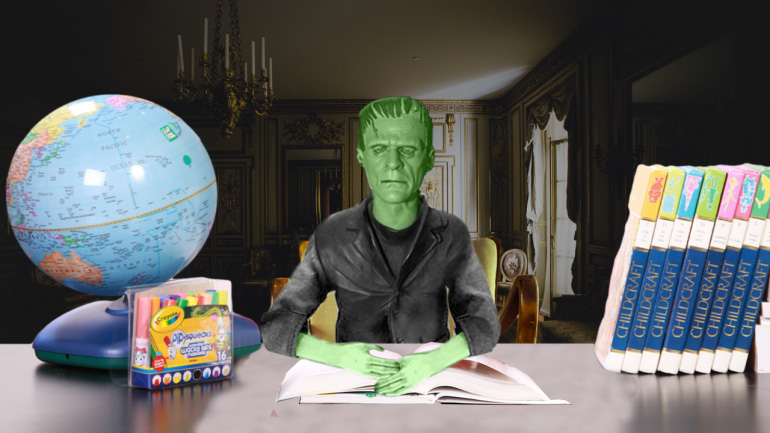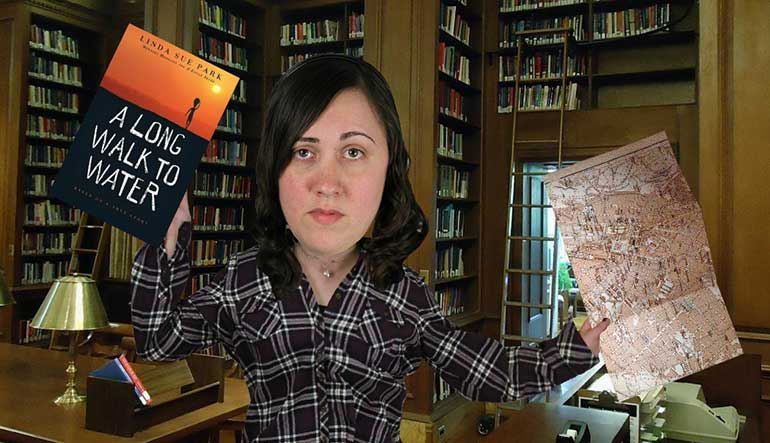ShmoopTube
Where Monty Python meets your 10th grade teacher.
Search Thousands of Shmoop Videos
Language Arts Videos 92 videos
In this lesson we'll subject you to some verbs and predicates. Each one is a necessary part of a complete breakfas—er...sentence.
Choosing words carefully is important. You may end up vexing the assemblage of citizens you're conversing with...or you might even just plain bore...
ELA 4: Writing Stories vs. Essays 53 Views
Share It!
Description:
Essays may have more structure, but stories are a little more versatile. We can't decide. Who do you think would win? Wait...this isn't a boxing match? Oh, ahem, well then, please enjoy our lovely compare and contrast video here that has nothing to do with stories and essays fighting each other. Nothing.
Transcript
- 00:04
[Coop and Dino singing]
- 00:13
The beauty of writing a fictional story is that, unlike an essay, very few rules apply. [Man writing essay on laptop]
- 00:19
No idea is too crazy.
- 00:21
A puppy on roller skates?
- 00:22
Sure.
Full Transcript
- 00:23
Clouds made of sushi? [Sushi clouds]
- 00:24
Totally!
- 00:25
A puppy on roller skates eating clouds made of sushi?
- 00:28
Why not!
- 00:29
If you can imagine it, you can write it.
- 00:32
But just because you're not writing a serious essay doesn't mean there aren't still some
- 00:35
rules you have to follow – we're talking the rules of sentence structure, grammar, word choice,
- 00:40
and themes.
- 00:42
So…let's start with grammar! [Coop teaching about grammar]
- 00:45
You know what grammar's all about – proper sentence structure, appropriate punctuation…all
- 00:49
of that boring stuff that makes it easy for people to understand what you're saying. [Puppy on rollerskates eats sushi clouds]
- 00:53
Just because you're making up a whacky story doesn't mean you get to make up some whacky
- 00:57
grammatical rules.
- 00:58
No matter how silly you get, always be sure to keep your grammar in check, or the grammar
- 01:03
police might get you. [Grammar policeman appears]
- 01:04
We hear they're pretty ruthless.
- 01:06
They're as in "t-h-e-y-apostrophe-r-e!"
- 01:10
Please don't send us to grammar jail! [Man in a grammar jail cell]
- 01:12
Phew, close call.
- 01:14
Where were we…
- 01:15
Oh right!
- 01:15
You also need to write thoughtfully.
- 01:17
Pay attention to each and every word choice.
- 01:20
You want your story to be easy to follow and interesting to read. [Dino discussing word choices]
- 01:23
And if you're ever struggling to find just the right word, you can always crack open
- 01:27
your friend, the thesaurus! [Man reads thesaurus]
- 01:29
We highly recommend it…or encourage, or endorse, or advocate, or advise, or urge…
- 01:34
…Sorry. We got carried away.
- 01:36
Anyway, not only can a bizarre word choice or incorrect sentence structure confuse your [Man chanting with a protest sign]
- 01:41
reader, it can be super distracting.
- 01:44
After a few too many grammatical errors, your reader will begin to lose focus and maybe
- 01:48
decide to go grab a pizza instead of finishing your story. [Girl throws book on the floor and runs away]
- 01:51
Which would be a bummer for everybody involved.
- 01:54
Especially the pizza.
- 01:55
So when it comes time to peer review someone else's work, be sure to treat their work like
- 01:59
you'd want them to treat yours: be considerate, but also thorough. [Coop talking about peer reviewing]
- 02:04
If there are areas where they can improve their word choice or grammar, be sure to let
- 02:07
them know.
- 02:08
Just be nice about it.
- 02:09
We here at Shmoop advocate doing it through a fun-filled song and dance number! [Coop tipping his hat]
- 02:13
Y'know like…"Your verb tenses are wrong, so we thought we'd tell
- 02:17
you through a sooooong!!"
- 02:19
…Ahem.
- 02:20
It's still a work in progress.
- 02:21
And remember, whether you're writing your own story or reviewing somebody else’s,
- 02:25
always be on the lookout for themes. [Coop talking about themes]
- 02:27
The best stories always have at least one or two good themes running throughout, so
- 02:31
if there's ever a chance to flesh one out, don’t miss it! [Man flying in the air with themes]
- 02:34
Or you know who’s gonna get ya…
- 02:35
The theme police.
- 02:37
Okay, that’s not a thing.
- 02:39
So…let's see, sentence structure, grammar, word choice, and themes.
- 02:42
That just about covers it!
- 02:44
Now does anyone have a good rhyme for "themes"? [People working on a new song in an office]
- 02:46
We're working on a new song.
Related Videos
Sticks and stones, right? Well...only sometimes. It's a good idea to make sure your words aren't going to hurt others. Let's look at some ways to d...
Learn to debate like a champ. It's way better than debating like a chimp. That just takes mudslinging to a whole new level.
Today we'll learn about biographies and autobiographies. And no, the second one has nothing to do with the lives of cars.
In this lesson we'll subject you to some verbs and predicates. Each one is a necessary part of a complete breakfas—er...sentence.
Choosing words carefully is important. You may end up vexing the assemblage of citizens you're conversing with...or you might even just plain bore...

